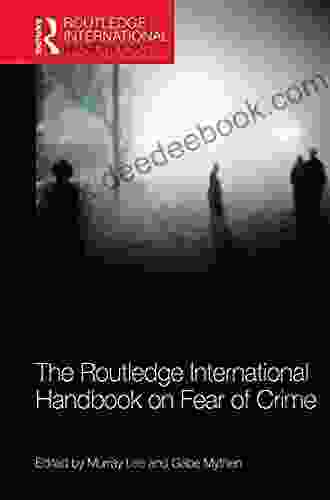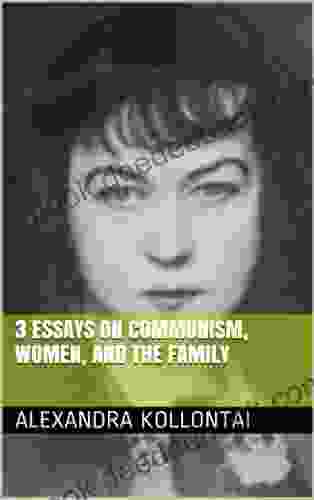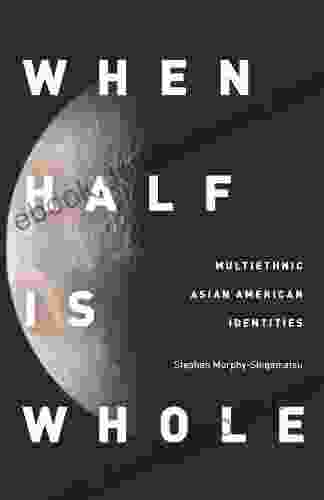Essays on Communism, Women, and the Family: A Historical and Critical Perspective

4.3 out of 5
| Language | : | English |
| File size | : | 388 KB |
| Text-to-Speech | : | Enabled |
| Screen Reader | : | Supported |
| Enhanced typesetting | : | Enabled |
| Word Wise | : | Enabled |
| Print length | : | 48 pages |
| Lending | : | Enabled |
Communism, as a political and economic ideology, has profoundly shaped societies worldwide, leaving an enduring impact on various aspects of human life, including the roles of women and the structures of the family. This essay delves into the complex relationship between communism, women's emancipation, and family dynamics, examining the historical evolution, ideological foundations, and social consequences of communism's policies and practices. By engaging with a diverse range of scholarly perspectives, this essay seeks to provide a nuanced understanding of the interplay between communism, gender equality, and family structures.
Historical Evolution of Communism and Its Impact on Women and the Family
The origins of communism can be traced back to the writings of Karl Marx and Friedrich Engels in the 19th century. Marx and Engels argued that capitalism, as an economic system based on private property and the exploitation of labor, led to the oppression and inequality of women. They believed that under communism, with the abolition of private property and class distinctions, women would achieve full emancipation and liberation.
The Russian Revolution of 1917 marked the first successful implementation of a communist state. The Soviet Union, under the leadership of Vladimir Lenin, implemented various policies aimed at liberating women from traditional patriarchal norms and promoting their participation in the workforce. These policies included the legalization of abortion and divorce, the establishment of state-run childcare facilities, and the encouragement of women to pursue higher education and careers.
Following World War II, communism spread to other countries in Eastern Europe and beyond. In these countries, communist governments also introduced policies designed to promote women's equality and challenge traditional family structures. For example, the German Democratic Republic (GDR) implemented a comprehensive system of state-run childcare and maternity leave, allowing women to combine work with family responsibilities.
Ideological Underpinnings of Communism and Its Impact on Women and the Family
The ideological underpinnings of communism have significantly influenced its policies and practices regarding women and the family. Marxist theory posits that the family is a product of class society, serving to maintain capitalist relations of production. According to Engels, the traditional family structure, based on the private ownership of property and male dominance, oppressed women and prevented them from fully participating in society.
Communism, therefore, sought to dismantle the traditional family structure and create a new, egalitarian family based on comradely relationships and shared responsibilities. Communist governments implemented policies that encouraged women to enter the workforce, promoted shared parenting, and provided state support for childcare and other family-related services.
Social Consequences of Communism on Women and the Family
The impact of communism on women and the family has been multifaceted and complex. On the one hand, communist policies have undoubtedly led to significant progress in women's emancipation. For example, in the Soviet Union, women gained access to education, employment, and political participation, transforming their roles in society.
On the other hand, communist policies have also had unintended consequences for women and the family. The emphasis on women's participation in the workforce has sometimes led to a double burden for women, as they have been expected to maintain their traditional domestic responsibilities while also working outside the home. Additionally, the state-run childcare system has faced criticism for its lack of quality and its potential to undermine the parent-child bond.
Post-Communism and the Changing Landscape of Women and the Family
With the collapse of the Soviet Union and other communist regimes in the late 20th century, the landscape of women and the family in these countries has undergone significant changes. In some countries, such as the Czech Republic, women have made further gains in terms of education and employment, while in others, such as Russia, traditional gender roles have re-emerged.
The legacy of communism on women and the family continues to be debated and studied by scholars. Some argue that communist policies ultimately led to a more egalitarian society, while others contend that women's emancipation was compromised by the state's emphasis on productivity and the traditional family structure was undermined.
The relationship between communism, women, and the family is a complex and ever-evolving one. While communism has undoubtedly contributed to women's emancipation and the challenge of traditional family structures, it has also brought about its own set of challenges and unintended consequences. The legacy of communism continues to shape societies today, and the ongoing debate surrounding its impact on women and the family provides valuable insights into the complexities of social change and gender equality.
References
* Engels, F. (1884). The Origin of the Family, Private Property, and the State. * Kollontai, A. (1920). The Family and the Communist State. * Lapidus, G. (1978). Women in Soviet Society: Equality, Development, and Social Change. * Molyneux, M. (1981). Women's Liberation in the Soviet Union: A Debate on the Family. * Scott, J. (1991). Gender and the Politics of History. * Stites, R. (1978). The Women's Liberation Movement in Russia: Feminism, Nihilism, and Bolshevism, 1860-1930.
4.3 out of 5
| Language | : | English |
| File size | : | 388 KB |
| Text-to-Speech | : | Enabled |
| Screen Reader | : | Supported |
| Enhanced typesetting | : | Enabled |
| Word Wise | : | Enabled |
| Print length | : | 48 pages |
| Lending | : | Enabled |
Do you want to contribute by writing guest posts on this blog?
Please contact us and send us a resume of previous articles that you have written.
 Novel
Novel Chapter
Chapter Text
Text Story
Story Genre
Genre Reader
Reader Paperback
Paperback E-book
E-book Paragraph
Paragraph Bookmark
Bookmark Shelf
Shelf Glossary
Glossary Bibliography
Bibliography Foreword
Foreword Synopsis
Synopsis Annotation
Annotation Manuscript
Manuscript Bestseller
Bestseller Classics
Classics Library card
Library card Autobiography
Autobiography Encyclopedia
Encyclopedia Narrator
Narrator Character
Character Resolution
Resolution Card Catalog
Card Catalog Borrowing
Borrowing Archives
Archives Periodicals
Periodicals Scholarly
Scholarly Lending
Lending Journals
Journals Rare Books
Rare Books Special Collections
Special Collections Literacy
Literacy Study Group
Study Group Thesis
Thesis Dissertation
Dissertation Book Club
Book Club Textbooks
Textbooks John C Fortier
John C Fortier Philip Gray
Philip Gray Jennifer Packard
Jennifer Packard Elizabeth Gibson
Elizabeth Gibson Hardy Jones
Hardy Jones Zaria Martin
Zaria Martin Kathleen Marcath
Kathleen Marcath Norman Lebrecht
Norman Lebrecht Remi Blackwood
Remi Blackwood Edward N Hmurovic
Edward N Hmurovic Dawn Peters
Dawn Peters J Davidson Frame
J Davidson Frame Laurie Lisle
Laurie Lisle Maya And Jello
Maya And Jello Jaci Rae
Jaci Rae Morley Winograd
Morley Winograd Charles River Editors
Charles River Editors V Castro
V Castro John Storm Roberts
John Storm Roberts Samuel J Redman
Samuel J Redman
Light bulbAdvertise smarter! Our strategic ad space ensures maximum exposure. Reserve your spot today!

 Clarence BrooksThe Savage Road Westward Saga: A Journey of Adventure, Danger, and Redemption
Clarence BrooksThe Savage Road Westward Saga: A Journey of Adventure, Danger, and Redemption Cooper BellFollow ·9.2k
Cooper BellFollow ·9.2k Arthur C. ClarkeFollow ·8.3k
Arthur C. ClarkeFollow ·8.3k John SteinbeckFollow ·13.8k
John SteinbeckFollow ·13.8k Rubén DaríoFollow ·8.2k
Rubén DaríoFollow ·8.2k Jared PowellFollow ·18.2k
Jared PowellFollow ·18.2k Braeden HayesFollow ·17.7k
Braeden HayesFollow ·17.7k Ralph TurnerFollow ·10k
Ralph TurnerFollow ·10k John MiltonFollow ·9.1k
John MiltonFollow ·9.1k

 E.E. Cummings
E.E. CummingsThe Routledge International Handbook on Fear of Crime
Fear of crime is a serious problem that can...

 Fletcher Mitchell
Fletcher MitchellThe Hunchback in Hellenistic and Roman Art: A...
The hunchback, or kyphosis, is a physical...

 Victor Turner
Victor TurnerA Comprehensive Guide to Needle Felting for Moms:...
Needle felting, a captivating craft...

 Joseph Foster
Joseph FosterWhere is Scandinavia?
Scandinavia is a region in...

 Leon Foster
Leon FosterNovel Shades of Magic: A Masterpiece of Magical...
An Enthralling...
4.3 out of 5
| Language | : | English |
| File size | : | 388 KB |
| Text-to-Speech | : | Enabled |
| Screen Reader | : | Supported |
| Enhanced typesetting | : | Enabled |
| Word Wise | : | Enabled |
| Print length | : | 48 pages |
| Lending | : | Enabled |












